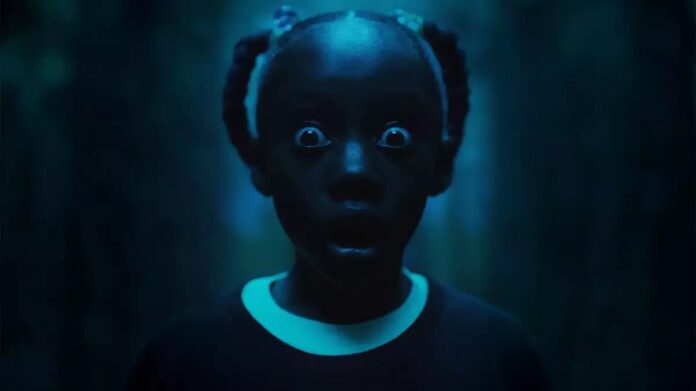In “Us,” horror is given a tight context of generational oppression by putting it beneath the layer. Jordan Peele reinvents the horror genre where the fear and anxiety are caused not just by the tropes of horror but also by what horror has to say. The name of the film has other interpretations as well when looked at as the acronym for “United States.” This becomes a little clearer through dialogue in the film when the doppelgangers of all the main characters invade their homes, and when asked by the husband as to who they are, the doppelganger wife replies, “We are Americans.” This is a powerful scene because it brings together the politics of the film for the first time in the open. Peele lets his storytelling bring out the politics and takes a symbolic approach that slowly comes into full swing by the end, while also becoming chaotic when it doesn’t quite merge well with each other.
The film can be used as a nice groundwork to build upon a theoretical interpretation while speaking of oppression and how violence coming from the oppressed is portrayed in the film. Political theorist and activist Franz Fanon wrote about some of the ideas that Peele visualizes through his narrative. Fanon writes that when the oppressed see the privileged people living in their own posh apartments, owing resources that the oppressed cannot even dream of it fills within them angst against the privileged, whom they see as a reason for their continued suffering. The privilege of the upper-class paves way for continued oppression. Peele tries to bring that point up when the doppelgangers turn up at their residence. When the family of doppelgangers, exactly like the family of four who have come for their summer vacation, comes inside the house, there is an apparent feeling of otherization in their actions. Although it is not given much importance, we can see the man touching the curtains and looking around with a feeling that he has never seen such luxury before. Having come from a world where they had no resources to buy new toys for their kids on birthdays and no money to have food, coming to this “other” side fills their longing for this life. The violence in the film is thus justified in both terms: it generates horror in the way it is treated, scaring the living hell off anyone watching, and it also incites empathy of sorts for the killers when given the background of oppression that is rooted in their violence.
Jordan Peele reinterprets the horror genre by using the tools of its horrifying storytelling to base the story on class discrimination and privilege. Along with emotional ramifications, there is an added layer of political implications, which gives new meaning to the troupes. The writing is also such that it doesn’t fall on your face but instead uses traditional devices to make its point. On a narrative level, all of the devices work on their own terms, but they shine through when their thematic points are called upon as well. The cyclic nature of oppression is revealed when one character replaces the other to go into their world and live a life of luxury. Of how the current way of living deems it necessary for one section to suffer indefinitely for the highhandedness of the other.
The music of the film is brilliant, and it inflicts fear, and Peele uses humor in the most unexpected of places. In one of the most devastating scenes of the massacre, as one character is killed brutally and has a few moments before death, she orders her automatic speakers to call the police. And the robotic murderers look on as the song starts playing in the background. This is also a way to pay homage to the rappers, which Peele does more than once in the film. The song also becomes synonymous with the other things that the film is trying to say, with similar themes of oppression and police brutality embedded in it. It also works as a mood lightener, putting water on the life-size fire created by the butchery moments ago.
Jordan Peele has achieved a new feat in looking at horror differently and bringing his worldview through aesthetics. The film works both as a horror and in how it brings out the complexities of oppression and privilege. It is never just a horror film, nor ever a political film talking about American life. The best aspect is how it merges the two and how one elevates the other. “Us” manages to do just that to create a gloomy landscape. And it all fits perfectly as well. While the horror creates a scary effect, the things it is infused with are all the more convincing and hard-hitting with the impact that the treatment has on it. That way, it is a perfect marriage and one that will haunt you long after watching.
“Us” is a 2019 Drama Horror Film directed by Jordan Peele.

